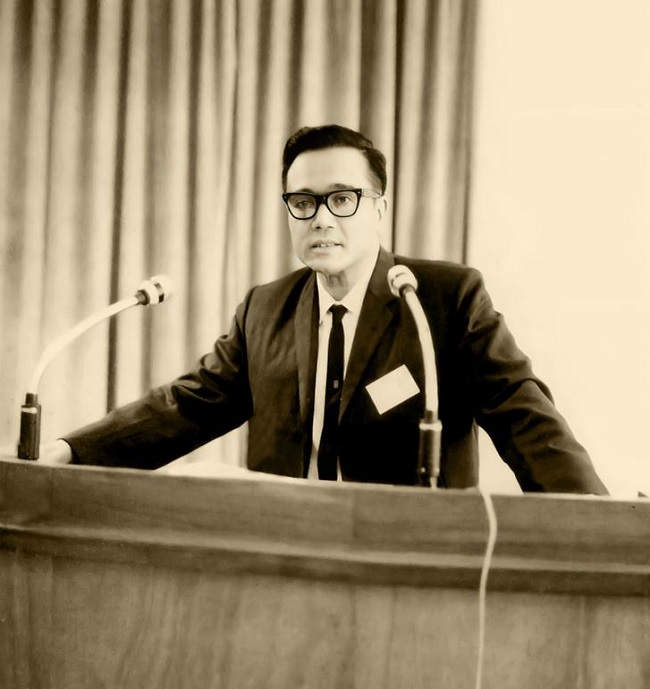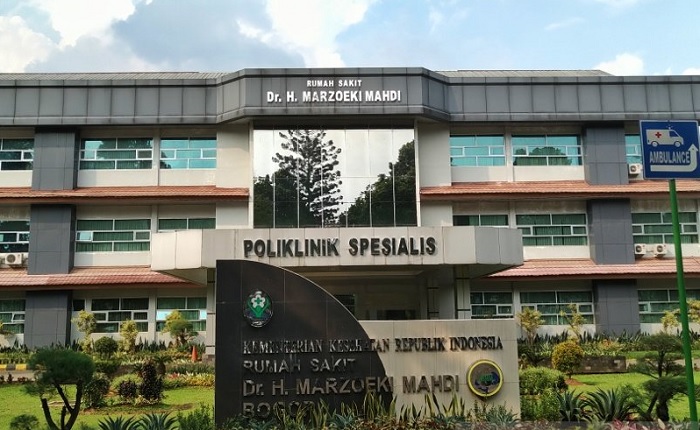Treating mental health in Indonesia
Aliza Hunt, Hans Pols and Sandersan Onie
In the 1970s and 1980s, mental health care in Indonesia was considered a model for mental health care in all of Southeast Asia. This is no longer the case, but there are many promising developments today.
The year was 1960. Prof Dr Kusumanto Setyonegoro smoothed his stylish jacket with his left hand as he cut the ribbon with a flick of his wrist, declaring Sanatorium Dharmawangsa, the first private mental hospital in Jakarta, open for business. Kusumanto was a handsome man in his thirties with an electric personality that drew people to him.
After graduating from Universitas Indonesia (UI) in the early years of Indonesia’s independence, Kusumanto became head of UI's Department of Psychiatry. He revolutionised the curriculum and attracted the next generation of psychiatrists. From 1971 to 1986 Kusumanto was head of the Directorate of Mental Health in Indonesia’s Ministry of Health. He pioneered the first nationwide mapping of mental health needs in 1965, set up fifteen state psychiatric hospitals as well as several private hospitals, and started publishing the psychiatric journal Djiwa. The system he created was praised internationally. It was a shining example of mental health care in the ASEAN region. No wonder that he was later referred to as the godfather of Indonesian psychiatry.
Decline
Kusumanto taught an eclectic-holistic uniquely Indonesian brand of psychiatry that seamlessly integrated international trends with local practices and constraints. After he retired, his vision slowly disappeared. Land earmarked for mental health infrastructure was repurposed, the numbers of graduating psychiatrists declined, and attention shifted to other health priorities.

Internationally, psychiatrists started to embrace a reductionist medical model of illness, in sharp contrast to Kusumanto’s expansive eclectic-holistic approach. He lamented that psychiatrists were becoming 'tukang yang mahir' or mere technicians; they addressed the illness but neglected the person. Health conditions were increasingly understood in universal, macroeconomic terms, and expressed in statistics of disease burden. Interest in holistic mental health interventions were waning and psychiatrists focused on psychopharmacological treatments.
Partially fulfilled promises
Today, Indonesia’s mental health system consists of a collection of partially fulfilled promises. The new mental health legislation passed in 2014 provided a clear blueprint for the revitalisation of Indonesia’s mental health system. Unfortunately, the legislative mechanism that would have ensured its implementation was not enacted. Consequently, mental health remained in the political margins and a united vision at all levels of Indonesian government has yet to appear. Repeatedly, attempts were made to close the Directorate of Mental Health within the Ministry of Health. Even though those failed, mental health has routinely received a mere one per cent of Indonesia’s health budget.
Data on overall expenditure on mental health in Indonesia has never been reported. No combined mental health data tracking system exists. Indonesia’s latest entry in the World Mental Health Atlas contains many missing data fields, including the number of mental health care professionals, available facilities such as psychiatric beds, and total prevalence of people treated for severe mental illness. Indonesia has no state-run prevention programming and a national suicide prevention strategy only a year into development.
The latest available data demonstrate a large gap between the number of mental health specialists and mental health facilities as compared to what is needed to address treatment needs. In 2018, before the pandemic hit, Basic Health Survey (Riskesdas) suggested that over 26 million Indonesians – equivalent to the population of Australia – should be diagnosed with anxiety or depression. Over 16 million Indonesians appeared depressed. These data indicate that over three million Indonesians will die from suicide. However, the number of predicted suicides would be far higher if calculated on the data from another Indonesian national survey, where depression rates are twice as high. In the official numbers from province level mortality data systems, we know suicide deaths are massively underreported. Mental health problems during the COVID-19 pandemic have increased. Some studies suggested depression in Indonesia has increased five to six times the pre-pandemic rate.
In 2022, Indonesia has three mental health care professionals per 100,000 population, below average for low-middle income countries. Currently, there are 1,212 registered psychiatrist, 3,189 clinical psychologists, 1,014 mental health nurses, 4,609 social workers and a smattering of GPs with mental health training and lay mental health workers for over 270 million people. If Indonesia had the same relative number of psychiatrists as Australia, there would be almost forty-thousand psychiatrists. There are 48 psychiatric hospitals and latest available data indicate that there are 269 psychiatric wards in general hospitals, but they are unevenly spread across the archipelago. Six out of 34 provinces do not have a psychiatric hospital and only a small percentage of the local health care centres (puskesmas) have mental health programming.

The work done by civil society national communities of action, which are often run by people with lived experience or carers, is not included in this data. There are numerous online support communities, counselling services, and helplines run by private sector, not-for-profits, and community groups. In addition, there are initiatives in provincial and local government areas, for example in Yogyakarta, Aceh and Kebumen district in Central Java. Existing support systems such as elders, religious leaders and healers also play an active part. However, none of these civil society initiatives have the reach or backing to offer the support and facilities required to serve all individuals experiencing mental health challenges.
The way forward
With the advent of the COVID-19 pandemic, mental health has received much attention globally. In Indonesia, topics such as depression, anxiety and burn-out, along with high-profile suicide cases have been trending on social media. In February 2022, the Ministry of Health established a national centre of mental health on the site of Indonesia’s first psychiatric hospital, Dr. H. Marzoeki Mahdi in Bogor. This facility coordinates and implements a new comprehensive national strategy for mental health. Although this approach appears to be hospital-centred, it aims to develop initiatives in mental health prevention, promotion, cure, and rehabilitation in the community.
This could be a turning point in Indonesia’s mental health care system. It is therefore timely to remember the lessons from Indonesia’s golden age of psychiatry. As Indonesia takes up its position as a leading global power, it is time to revive Kusumanto’s insights.
An adequate mental health system is based on good data. Indonesia needs to develop her own culturally specific evidence base in psychiatric diagnostics, evidence-based treatments, and rehabilitative approaches. Investment in high quality research infrastructure is critical. This foundation would allow for the development of culturally adapted psychiatric epidemiology, mental health econometrics, anthropological diagnostic phenomenology, and the implementation of mental health interventions.
The most important element in mental health is the interaction between healers and patients, which is shaped by social conventions, health systems, and bureaucracy. A shared understanding of mental health needs is essential for this therapeutic relationship to flourish. This could be achieved through collaborative processes involving communities, health planners and academics. Together, they could develop a uniquely Indonesian brand of mental health.
Healers need to be identified and procedures for ensuring high quality therapy needs to be put in place. Indonesia already has a large potential workforce of informal counsellors including society’s elders, traditional healers, religious leaders, and the mental health survivor or consumer movement. Whilst Indonesia works to scale-up the number of psychiatrists, psychologists, social works and general practitioners with mental health training, this additional workforce should be mapped and integrated into current national mental health strategy.
Finally, Indonesia needs to invest in mental health personnel and infrastructure. Without a clearly defined and larger mental health budget, Kusumanto’s visionary approach to Indonesian mental health will again fade. Capital investment in mental health is only guaranteed if the importance of mental health is acknowledged in Indonesian legislature. The 2014 mental health law must now enact the essential legislative mechanism to ensure coordination across the ministries to ensure its implementation. Without this legislative act enshrining the importance of mental health, Indonesia will risks failing the tens of millions of her populous suffering from mental health problems.
Aliza Hunt is visiting Fellow at Centre for Mental Health Research at the National Centre of Epidemiology and Population Health at the Australian National University; Hans Pols is professor in the School of History and Philosophy of Science, University of Sydney; Sandersan Onie is Post-Doctoral Fellow at the Black Dog Institute, Australia and Founder of Emotional Health for All, Indonesia.












